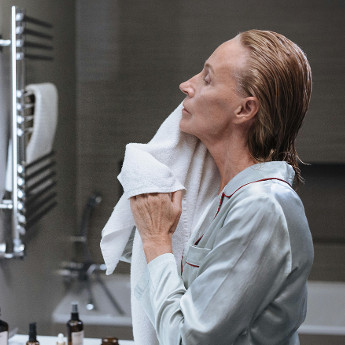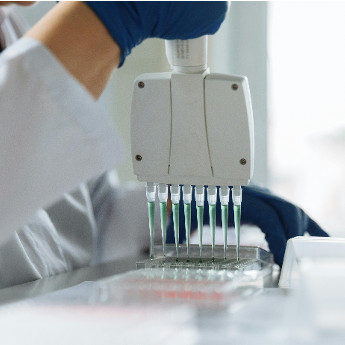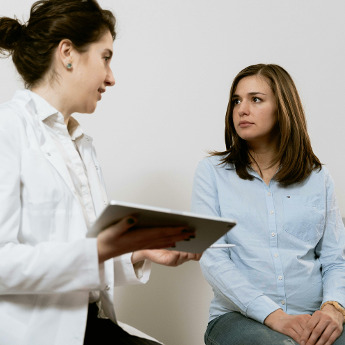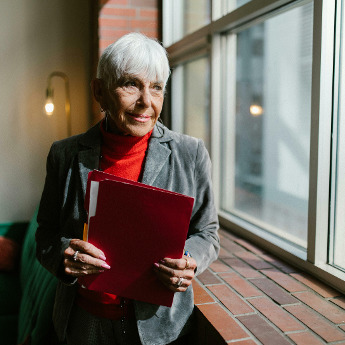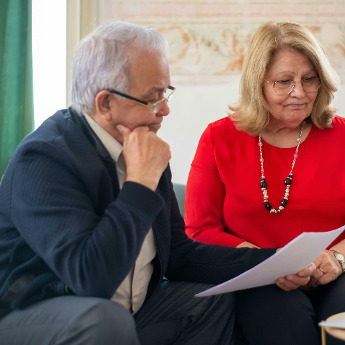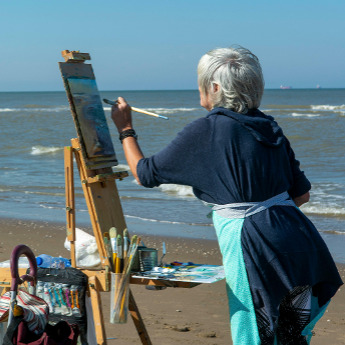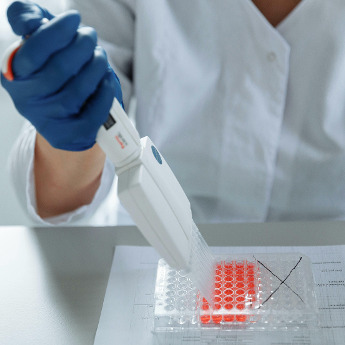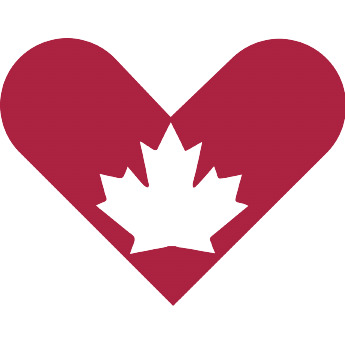By continuing to use our site, you consent to the processing of cookies, user data (location information, type and version of the OS, the type and version of the browser, the type of device and the resolution of its screen, the source of where the user came from, from which site or for what advertisement, language OS and Browser, which pages are opened and to which buttons the user presses, ip-address) for the purpose of site functioning, retargeting and statistical surveys and reviews. If you do not want your data to be processed, please leave the site.
The Voice of People With Breast Cancer
Education
Our Voices Blog
Contributor : CBCN Team
Caring for Your Skin Throughout Breast Cancer Treatment
Going through breast cancer treatment can take a toll on your skin, making it more sensitive to issues like dryness, itching, rashes, and hyperpigmentation (where skin patches become darker), to name a few. While skin problems may seem less urgent compared to serious side effects like heart complications or neutropenia, they can still greatly impact your daily life.
Breast Cancer Treatment and Travel: How to Plan a Safe Trip
Warm weather is just around the corner, and although traveling during or after breast cancer treatment may not be the first thing that comes to mind, it can be safe and even beneficial for your mental wellbeing. Depending on your treatment plan and how your body responds, travel might be possible; however, some individuals may need to wait until their treatment is complete. The key is to consult your healthcare team to ensure travel aligns with your treatment plan and take these tips into consideration.
Navigating Physician Wait Times in Canada During Breast Cancer Treatment
If you are faced with a breast cancer diagnosis, timely access to care is crucial, but each person will experience wait times in a different way. For some, a bit of waiting is a normal part of the process and is not necessarily cause for concern. For others, delays can cause anxiety and impact the course of their treatment. When navigating the uncertainties of a breast cancer diagnosis, understanding wait times and their potential impacts on health outcomes is essential. That’s why it is important to know what to expect and take the necessary steps in case you experience long delays.
Don’t Let the Fear of Recurrence Define You
Many people diagnosed with breast cancer experience fear of recurrence. While some level of fear is natural, excessive and persistent fear can negatively impact your quality of life. Signs that fears are interfering with your daily life and wellbeing include heightened anxiety, trouble making decisions, difficulty completing daily tasks, and a greater risk of developing post-traumatic stress disorder (PTSD) or depression. Being able to recognize the intensity and frequency of these fears is necessary to be able to manage them effectively.
Turn Your Experience Into Impact
People like you and me bring something irreplaceable to advocacy—real, lived experience. We know what it’s like to wait for test results, navigate treatment options and deal with the emotional stress. We’re the perfect people to speak up, act and work toward positive change by raising awareness, supporting others, pushing for policy changes, fundraising for research and simply sharing our own experiences with others
What Are the Other Breast Cancer Genes?
While mutations in the BRCA1 and BRCA2 genes are now well-publicized, there are other, lesser-known genetic mutations which can significantly increase the likelihood of developing breast cancer as well. Understanding these genetic risks allows individuals to make informed decisions about their health, from preventive measures to early detection strategies. Here, we discuss the lesser-known genetic mutations that can also impact the risk of developing breast cancer.
Recognizing TNBC Day: Raising Awareness, Reflecting on Progress, and Supporting Patients
March 3rd is recognized as Triple Negative Breast Cancer (TNBC) Day. While its aggressive nature and fewer treatment options can be distressing for those living with TNBC, access to information and support resources also continues to grow and improve. Seeking help, staying informed, and keeping in tune with your own experiences and emotions can help you feel more in control of your journey. Here, we present a list of educational and support resources for those diagnosed with TNBC.
Are You Happy with Your Doctor-Patient Relationship?
Recently, a woman from Alberta, who is dealing with a breast cancer diagnosis, reached out to me on Instagram. We’d connected before and shared parts of our breast cancer experiences with each other, so it was great to hear from her again. This time, though, instead of a written update she sent me a video clip from season two of The Big C, a television series currently on Prime TV. The show stars actor Laura Linney as Cathy, a suburban mom diagnosed with Stage IV melanoma and in the scene, Cathy advises a group of young medical students on how to treat their cancer patients.
The Rise of Artificial Intelligence in Breast Cancer Detection
Some people require additional imaging, such as ultrasound or MRI, due to factors like dense breasts or increased risk from BRCA gene mutations or family history. False positives on a mammogram can often lead to unnecessary biopsies. Despite these challenges, mammograms and other screening tools remain essential. This emphasizes the importance of advancing screening technology and pathology, which is where AI shows promise for improving outcomes.
Lifestyle, Diet and Breast Cancer: What’s the Connection?
When it comes to breast cancer prevention, many factors come into play—genetics, environment, and lifestyle choices. While we can’t control our genes, we do have the power to influence our health through diet, exercise, and other habits. Over the years, research has pointed to various lifestyle factors that may either increase or reduce the risk of developing breast cancer.
Our 2024 Year in Review
As we look back on 2024, we take a moment to reflect. This year has been one of growth, impact, and unwavering commitment to supporting breast cancer patients and their caregivers. Through donations, advocacy, networking, and your stories we've made significant progress in raising awareness, bringing you critical research, and providing vital resources and education for patients and their families.
Seven Ways to Respond to Family and Friends’ Reactions to Your Breast Cancer
Yet, the thought of having to say that “I have cancer” out loud to my family and close friends wasn’t something I wanted to do. It made me feel like I was looking for attention. That’s because having cancer is surreal and warps reality. It was near impossible for me to wrap my head around. Sharing this information felt deeply personal and required me to be vulnerable, strong and courageous all at the same time. No easy feat. So of course, once I confided in my circle of family and friends, I wanted them to say and do the things I needed.
Why Men Should Consider Genetic Testing for BRCA Genes
Both men and women have breast tissue, and while men don’t have the ability to produce milk, their breast cells can still develop into cancer. About 1 in 5 men with breast cancer have a close relative —male or female—who also had the disease. Research indicates that biological males make up half of the U.S. population carrying a BRCA1 or BRCA2 mutation, genes commonly linked to breast cancer in women.
The Power of Touch: How Massage Therapy Can Support Breast Cancer Patients
Receiving a breast cancer diagnosis can turn your world upside down. It can alter your life to one filled with fear, uncertainty, and a whirlwind of treatment options. In the midst of this chaos, many patients discover the potential of massage therapy as a complimentary therapy. This gentle, restorative treatment not only offers relief from physical discomfort but also nurtures emotional well-being and enhances overall quality of life.
What Were You Reading? Our Top 10 Blog Posts of 2024
As we look ahead to 2025, we reflect on the incredible strides made in breast cancer awareness, research, and support. The past year brought new insights, inspiring stories, and innovative developments in breast cancer research. To kick off the new year, we've curated a list of blog posts that have generated the greatest interest in our community over the past year.
Three Things I Learned That Make Me Mentally Stronger
This was not (and sometimes still isn’t) easy. I blamed and shamed my way through surgery and treatment. As a result, I held my breast cancer diagnosis close to my heart, not really talking about it or sharing about my experiences with anyone beyond my tight circle of confidants. It wasn’t until a friend pushed me to write an article about my experience with breast cancer that I started to crack open and search for a different way to go through it.
When to Ask Your Oncologist About Genomic Testing
Receiving a cancer diagnosis can feel like a rollercoaster ride, and it’s natural to have a million questions swirling in your mind. One of the most important ones is whether genomic testing could help inform your treatment. Here’s a quick guide on when to bring it up with your oncologist.
The Rise of Breast Cancer Rates in Asian Women
Breast cancer incidence rates have been relatively stable over the past decade; however, recent studies are revealing that breast cancer rates among Asian American women have been rapidly increasing. Since 2000, breast cancer occurrence among Asian American and Pacific Islander women under 50 years of age has increased by 50%, growing more than 2% every year since 2012, according to a 2024 report from the American Cancer Society.
A Single Day Can Leave A Lasting Impact
. This year, Giving Tuesday will take place tomorrow, on December 3rd. Established in the U.S. in 2012, Giving Tuesday is now a worldwide movement focused on generosity, giving, and volunteering. Although it’s officially observed on the first Tuesday after Black Friday, the spirit and impact of Giving Tuesday often extends well beyond just 24 hours.
Sugar, Baby: Is the sweet rush worth it?
I call Tamoxifen hot flashes: bonfires with a flood. Because when one hits you, it feels like your entire body is going up in flames right before it’s soaked in a flood of hair-flattening, body-drenching sweat. It’s horrible and exhausting, never mind totally gross. And there was nothing I wouldn’t do to avoid having one. Even giving up sugar.

